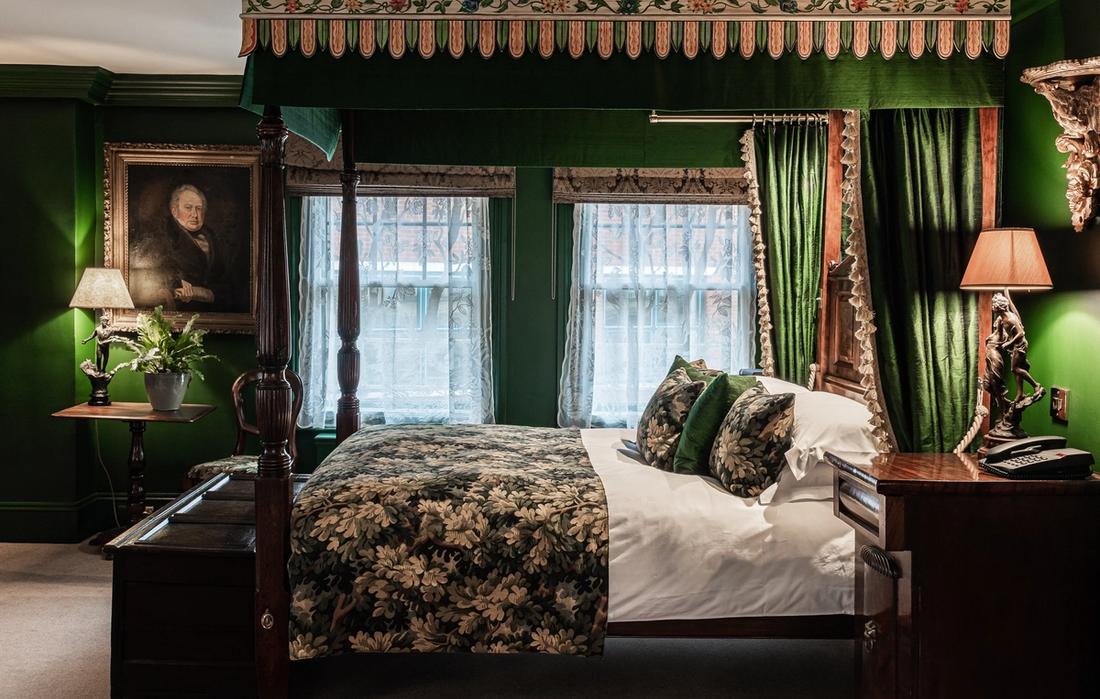The Good Hotel Guide is the leading independent guide to hotels in Great Britain & Ireland, and also covers parts of Continental Europe. The Guide was first published in 1978. It is written for the reader seeking impartial advice on finding a good place to stay. Hotels cannot buy their way into the Guide. The editors and inspectors do not accept free hospitality on their anonymous visits to hotels. All hotels in the Guide receive a free basic listing. A fee is charged for a full web entry.
The Good Hotel Guide
About Us
Independent
Recommended
Trusted
Independent
Recommended
Trusted

Neither gloom, nor doom
All blog posts
3 minutes
15 Nov 2020
Neither gloom, nor doom
All blog posts
3 minutes
15 Nov 2020
By Adam Raphael

The Guide last week held virtual Zoom forums with 25 of its leading hotels, inns and B&Bs. I was expecting tales of woe, but not a bit of it. One owner reported that he had made more money in the past four months than in the past four years. Most reported being fully booked over the summer months right up until their forced closure. Still others said that business had been so good that they had been able to hold or even increase their rates.
Covid has, of course, been hugely disruptive for the hospitality industry, but its effects vary. Hotels in cities are struggling, seaside and country hotels are faring much better as the appeal of a foreign holiday diminishes and staycations flourish. Everyone in the industry, whether winner or loser, is faced by alarming uncertainty. But one thing is sure; life post-virus is not going to be the same.
One emerging trend is that hotels are beginning to cut loose from the shackles of online travel agents such as Booking.com, Expedia and the like. The Guide has long campaigned for this. Commission payments of up to 20%, and sometimes even more, levied by OTAs, are a burden on the industry and a source of inflation. But until now few hotels, even those that are highly popular with an established reputation, have felt confident enough to rely on their own efforts to fill their rooms. Keith Makepeace, the owner of Soar Mill Cove in Devon, says: ‘We got rid of the OTA’s this summer having had enough. We paid more than £402,000 in commission last year.’
The charge sheet against OTAs is long, including hidden charges, false discounting, pressure-selling and the way search results are influenced by commission payments. Google, in particular, deceives travellers, who do not realise that clicking on the paid-for top entry will take them to an OTA site, rather than the hotel’s website. That is in the interest of Google’s profits, but it is not in the interest of consumers. The Guide, admittedly, is biassed. Two-thirds of visitors looking for a hotel, according to the Competition and Markets Authority, consult an OTA before deciding where the stay. A tiny fraction of that number looks to us for advice. Nevertheless, the Guide’s audience on its website (www.goodhotelguide.com) has grown by more than 100% over the past two years and is continuing to grow.
I should also make clear, in the interest of disclosure, that the Guide cooperates with one of the leading OTAs, Booking.com. We get a 5% share of the commission paid by hotels which have declined to pay for a GHG web entry. The Goring Hotel in London, for example, has had a free entry in the print edition of the Guide for more than 40 years because it is a fine family-owned hotel. But if you click the check availability button on its GHG website entry, you will be taken directly to Booking.com’s entry for the Goring. So what is our defence? Simply this: the Guide could not exist without the revenues from its website. However, I still firmly believe that OTAs should clean up their act and reduce their charges.
Another welcome trend post-Covid is the growth in interest in electric cars. The Guide’s special page devoted to hotels with electric car charging points has seen its audience grow by more than 1,000% in the past year. It is now in our top 20 most visited pages. Again, I have an interest to declare. I own a Tesla. The Model 3 may not be the best car I have ever owned, and not without faults, but it is by far the most interesting. As a former motoring correspondent, I have driven quite a few cars over the years from Bentleys to Lamborghinis, but the Tesla has an appeal to a nerd like me which is unique. If you want to know what the future of motoring is, just take a test drive.


